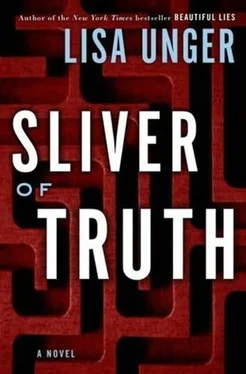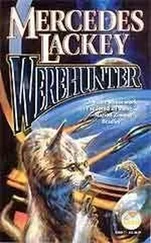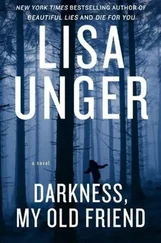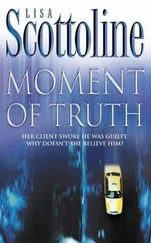I looked at the article in my hand. The headline read VICTIM’S NEPHEW PROTESTS GUILTY VERDICT.
I SAT IN the rental car for a few minutes until I saw a light snow start to fall. I turned off the engine and stepped out into the bitter cold. I watched my breath cloud and I pulled my coat close around me. Then I walked up the short drive toward the stout brown house, listening to the gravel crunch beneath my feet. No interior lights burned that I could see. I glanced at my watch and realized that anyone who might live there was probably still at work.
ACCORDING TO the Register, Max’s cousin had come forward after Race Smiley’s conviction to say that he’d seen another man there the night of Lana’s murder. He claimed not to have come forward earlier because he thought he’d been spotted and he was afraid for himself and his family. The police disbelieved the boy and found no evidence to corroborate the story. They said he might just be trying to help his uncle. The article had fired me up for a couple of reasons. First of all, no one had ever mentioned this cousin of Max’s, though he’d apparently grown up on the same street as Max and Ben. I found that odd and intriguing. And the idea that maybe my grandfather wasn’t a murderer after all, that he had been wrongly accused and convicted, gave me some weird kind of hope. Maybe the place from which I’d come wasn’t as dark and joyless as a tar pit.
I’d used the Internet to search for Nick Smiley and found that he was still living in his childhood home. The phone number was listed but I couldn’t bring myself to call. What would I say? Hi, I’m Ridley, your second cousin. How’s it going? So, about the night my grandmother was beaten into a coma…
My father always says that people get into trouble when they have too much money and too much time on their hands. If I had a nine-to-five job where I was accountable to someone for my days or if I struggled to make ends meet, I might not have been able to do what I did. But maybe it was more than just opportunity, a lack of anything better to do. There was and always had been a drive within me to know the truth of things. That’s what had caused all the trouble in my recent life. I thought about that as I booked myself on the next flight to Detroit.
“WHAT DO YOU WANT? ”
A bulky, bearded man had appeared from the side of the house. One word summed him up: menacing. He had a heavy brow and deep-set dark eyes. His thin line of a mouth seemed as though it had never smiled or spoken a kind word. Clad in a thickly lined flannel shirt and brown corduroy pants, he looked squared-off, ready for a fight.
“I’m looking for Nicholas Smiley,” I said, fighting an urge I had to run back to the Land Rover and drive away as fast as possible, tires screeching up the street.
“What do you want?” he repeated.
What did I want? A good question.
I figured there was no use softening the blow with a guy like this; he looked as if he could take a punch and might even like it. “I want to talk about the night Lana Smiley died.”
He jerked and stepped back as if I’d thrown a stone at him.
“Get off my property,” he said. He didn’t advance or retreat farther, so I held my ground. We stared at each other while I tried to think of something to say that might convince him to talk to me. I didn’t come up with anything.
“I can’t,” I said finally. “I need to know what you saw that night. And I’m not leaving until you tell me.” I pulled back my shoulders and stuck out my chin. It was a sad display of bravado since I think we both knew that if he’d advanced toward me, I would have run screaming for my car. Maybe that’s why he seemed to soften up just a bit, his shoulders sagging, his eyes on the driveway.
“Ancient history,” he said. “They’re all dead now.”
“Yes,” I said. “Lana, Race, and Max…they’re all gone. But I’m still here and I need to know what you saw that night.”
He let out a short, unpleasant laugh. “Well, who the fuck are you?”
“I’m Max’s daughter.” I almost choked on those words; they tasted so much like a lie on my tongue. He didn’t say anything, just turned his dark, suspicious eyes on me. I couldn’t tell if he didn’t believe me or if he just didn’t care. I felt him examining me, looking for signs of Max in my face. A blizzard of snowflakes had collected in his hair and the beard that covered most of his face.
“Let the dead lie, girl,” he said, and turned away from me.
I raised my voice and called after him. “You said you saw someone else kill Lana. You said Race wasn’t even home when she died. If that was true, why did you wait until after he was convicted to say anything?”
He stopped in his tracks but he didn’t turn around.
“Please,” I said more quietly. “I need to know what happened that night. They’re all dead now, Mr. Smiley. What harm could it do to tell me the truth?”
He turned around to look at me, then glanced uneasily up and down the street. There was no one about, no one standing in a window watching. I was really feeling the cold work its way into my center; I started to shiver. Then something in his face went from angry to sad. I wasn’t sure what changed his mind about talking to me; to this day, I still don’t know. Maybe I looked as pathetic and desperate as I felt. Maybe he didn’t want me to make a scene in his driveway. But he began walking toward the house and motioned for me to follow. Then it was my turn to change my mind. Maybe he was just luring me into his house to kill me, or tie me up in his basement, or something equally terrifying. I hesitated as he disappeared around the side of the house. Finally, curiosity got the better of me. I hurried after him.
“People know I’m here,” I said as I caught up to him. Unfortunately, this was a complete lie. The truth was no one even knew I was in Detroit. If I were to go missing, how long would it take people to notice I was gone, to track me here?
Tall hedges separated his property from his neighbor’s; round concrete blocks acted as a path. He walked through a side door that led into a neat kitchen that looked as if it hadn’t been updated in decades. I followed him over the threshold and shut the door behind me, but kept my hand on the knob. He walked over to the sink and filled a kettle with water, placed it on the stove, and turned on the burner.
“You gonna sit?” he asked me.
“No,” I said. “I’d rather stand.” I was nervous.
“I never knew Max had a daughter,” he said, his back to me as he stared out a window over the sink.
“I didn’t know until last year, after he died. It’s a long story. I was raised by other people. In fact, you probably know the man who raised me, Benjamin Jones.”
He nodded slowly, seemed to take in the information. “Bennie Jones. We came up together right on this street. He was a good kid. Haven’t seen him in years. Decades.”
We were silent a minute. I could hear the water in the kettle, little clinks in the metal pot as it changed temperature. I realized it wasn’t much warmer in the house than it had been outside. I looked around at the old wallpaper patterned with little cornices overflowing with fruit, the yellowed Formica countertops, the green tiled floor.
“Tea?” he asked. I was surprised by the civility of his offer.
“Sure,” I said. “Thanks.”
He moved to get some cups out of the cupboard. He tossed a look behind him as he took teabags out from a white ceramic canister. “I’m not gonna hurt you. You might as well sit.”
I nodded and felt silly. I moved toward the kitchen’s round wood table, pulled out a chair, and sat down. It was wobbly and uncomfortable but I stayed seated just to be polite. He came to the table and sat across from me, bringing the tea with him. I took the cup he offered gratefully and warmed my hands on it.
Читать дальше












